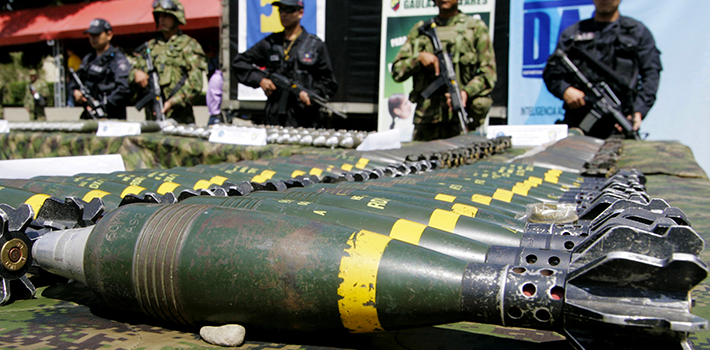
EspañolOne of the key challenges of collective action is that people fail to see the difference between individual and social logic. At the individual level, there is a direct relationship between the means and the ends. Socially, because of the inherent complexity of these phenomena, that relationship is less clear, and often does not exist.
Further, when making collective decisions, individuals often ignore or forget the basic logic of human action (praxeology). A clear example is the case of peace negotiations in Colombia. We can safely say there is widespread consensus on the need to end the armed conflict that has plagued the country for decades. However, the discussion around it has been framed in terms of mutually exclusive alternatives, not easily understood by the voter and without the necessary reflection on their true costs and benefits.
The first alternative proposed is the strengthening of security policies. In theory, fully carrying out the most fundamental role of government would be enough to achieve the surrender of rebel groups. In effect, as some have argued, this option would lead to an increase in costs incurred by defiant combatants to continue fighting the war, which would then force them to negotiate, or in the best case scenario, surrender.
However, this view misses the fact that this was precisely the strategy of the Colombian government since the emergence of the Marxist guerrilla. The obvious failure of this strategy results from the very nature of these groups that wage war against the state: rebel fighters camouflaged within the civilian population, employing terrorist tactics, and swiftly modifying their military strategy in response to government forces.
Moreover, this proposal ignores the high cost that a military option entails. National security has become almost an obsession that, as I’ve noted previously, has defined the political agenda for many years. This, in turn, has led to the strengthening of the coercive power of the state and the justification of its excesses while it aims at a superior objective: safety. Finally, the military option also ignores the changes that have occurred in public international law that, whether we like them or not, have increased the cost of focusing government policy primarily on the military.
The result has been the continuation of the war. Perhaps this fact is the key to understanding the overwhelming support that, at least initially, the government of Juan Manuel Santos and his alternative peace process enjoyed.
However, the defense of Santos’s strategy also presents two basic problems. On the one hand, many have assumed that a peace process will automatically be successful in achieving peace and national reconciliation. As a result, the current presidential campaign has emphasized the many benefits of an eventual agreement, without a similar effort to demonstrate that such an agreement is even possible.
Therefore, the debate continues to be overly simplified, and the real costs of the negotiation process and the likelihood of its success has been distorted. What are the real chances of reaching an agreement? While it is true that there has been some progress, we must not forget that the national government has repeatedly stated that “nothing is negotiated until everything is negotiated.” This implies that until a final agreement is reached, there can be no talk of progress.
It is not only a matter of assessing the real incentives for each party to remain at the negotiating table, but also of the range of the issues that have been established for the negotiations and the cost that Colombians will have to assume to ensure a fair transition toward peace (justice, truth, reparations) and “DDR” (disarmament, demobilization, and reintegration).
In addition, supporters of the peace process have misled voters in romanticizing the emergence of a “new Colombia” after an agreement is reached. Negotiations are taking place specifically with the Revolutionary Armed Forces of Colombia (FARC), but we also have to consider the existence of the National Liberation Army (ELN) and the threat of criminal gangs that remain unresolved. Moreover, as history shows in other countries that have experienced a successful peace process, it is possible that this may lead to increased rates of insecurity in urban areas, as has occurred in El Salvador and Guatemala.
The real problem in Colombia today is the oversimplification of peace as a desired objective, and the false dichotomy proposed to achieve it: military engagement or negotiation. We are missing out on an opportunity to think more deeply about reasonable alternatives that could potentially generate much greater consensus among the public. Contrary to what some may suggest, peace is not a matter of faith or good wishes. The type of peace we achieve and the strategies we use to achieve it will determine whether we will one day be able to live in a society in which we all dedicate ourselves to think more about what each of us wants, and less about common goals that are impossible to plan for or reach.
 Versión Español
Versión Español












